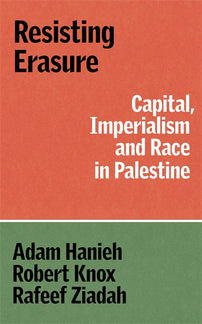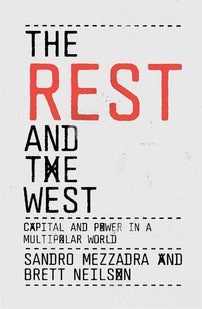“Haddad vs the Council for British Research in the Levant” Why it Matters
A Statement on “Toufic Haddad vs The Council for British Research”

A preliminary hearing for “Toufic Haddad vs The Council for British Research”, (TH vs CBRL, for short) is set to take place from 1-4 July in London to determine if the UK Employment Tribunal is the appropriate jurisdiction for this case.
Haddad is a Palestine studies scholar with a PhD in Development Studies from the School of Oriental and African Studies in London. He has written extensively about the question of Palestine in academic and nonacademic fora for more than 25 years, with significant contributions on the Gaza Strip, where he at times lived and worked.
Haddad contends that he was unfairly dismissed from his job as the Director of CBRL’s Jerusalem branch (the Kenyon Institute) after an escalating campaign of censorship targeted him. Although formally justified as a ‘redundancy on financial grounds’ which arose as a result of a funding cut from CBRL’s chief funder, the British Academy (BA), Haddad contends that his termination was in reality a case of targeted censorship and unfair dismissal because of his anti-Zionist beliefs.
CBRL is attempting to get the case thrown out of British courts by arguing that Israel’s courts are the appropriate jurisdiction to hear the case. CBRL notes that Haddad is a US citizen and was on an Israeli contract at the time of his termination, with a specific clause that determined that disputes between the parties should be resolved in Israeli courts. In order for Haddad to overcome this clause in his contract, he needs to convince a UK Tribunal that his employment, and the work of CBRL in general, had greater connection to the UK than they did to the country of his contract – namely, to Israel.
Haddad’s legal team has assembled a comprehensive list of arguments, together with a 50-page witness statement, backed up by more than 3,000 pages of evidence, to prove precisely that – namely, that his employment was indeed more connected to the UK than it was to Israel. While these arguments will be reserved for the four-day public trial (1-4 July 2025), which the general public is invited to attend, we would like to take this opportunity to draw attention to how this case relates to a series of important ongoing debates and struggles in the public sphere, particularly in light of the ongoing Gaza genocide, the role of the UK government in those crimes, and the specific research and funding dimensions of these matters as they pertain to UK academia.
Why does Haddad vs CBRL Matter? It matters because….
1. This is a case about Israel’s apartheid courts and the attempt by a British charity to force a Palestinian anti-Zionist academic to have his case adjudicated there:
By attempting to get UK courts to rule against accepting UK jurisdiction, CBRL is attempting to force Haddad’s case into Israel’s apartheid courts. CBRL knows that UK courts have a track record protecting academic freedom and calling out unlawful dismissal on “protected belief” grounds. The UK Government passed legislation declaring the importance of academic freedom and freedom of speech, which the courts would be obliged to consider and apply. By contrast, Israel’s courts are an indivisible part of its Apartheid system that routinely attempt to enforce and defend Israel’s self-declared ‘Jewish democratic’ state character. Adalah, the respected Palestinian human rights organization inside Israel currently administers a Discriminatory Laws Database comprising “a list of over 65 Israeli laws that discriminate directly or indirectly against Palestinian citizens in Israel and/or Palestinian residents of the Occupied Palestinian Territory (OPT) on the basis of their national belonging.” A scholar of Palestinian heritage who holds anti-Zionist beliefs like Haddad is virtually certain to have an unfair hearing, especially when his case relates to accusations of unlawful dismissal based precisely on his anti-Zionist beliefs – beliefs that would be protected in the UK, but which will be met with open hostility in Israel’s apartheid courts – especially given his profile, and the larger context within which this case is taking place.
2. This is a case about Jerusalem, and enforcing the UK’s position on the Illegality of Israel’s Annexation:
The CBRL is a British-registered charity and company that is not registered in either Israel or the Occupied Palestinian Territories (OPT). CBRL’s Jerusalem branch, the Kenyon Institute, which Haddad directed since January 2020, is located in Sheikh Jarrah, the Israeli-occupied and annexed East Jerusalem neighbourhood that is the subject of repeated Jewish settler activity. Israel’s annexation of East Jerusalem is considered unlawful by the UK government and the global community, and any attempt to apply Israeli sovereignty upon illegally-annexed occupied territory violates international humanitarian law (IHL) and should be summarily rejected by a British court as a means to enforce both IHL as well as the UK’s own position regarding Jerusalem.
This case also tests the role of British academic institutions in contexts of scholasticide and genocide. The CBRL is located in East Jerusalem, in the OPT. The Gaza Strip – where Israel carries out genocide today and where it has already implemented scholasticide – is also located in the OPT. CBRL’s core activities explicitly include the fostering of academic collaborations and partnerships together with organising events that contribute to shaping debate and understanding through informed public outreach and education. One would expect that an organisation located in the OPT with such a mandate and core activities, would step up to the moral responsibility of speaking truth to power in an effort to prevent genocide from unfolding. Instead, CBRL terminated the employment of an expert on Palestine affairs and Gaza, and shuttered an institute that was organically linked with the wider Palestine studies community, doing so at precisely a moment when informed awareness around what was happening was most needed.
3. This is a case about Employment Rights in British institutions overseas:
Recent years have witnessed a push by many UK academic institutions to open affiliates beyond UK borders. For example, Universities UK boasts of a new network called the ‘UK University Overseas Campus Network’ (UKUOCN) involving 18 UK universities. This global expansion has led to a rise in the use of local employment contracts as a means to water down and weaken labour standards in overseas British academic institutions.
While the CBRL is not a new UK overseas academic endeavour, it placed previous international Directors – who had to have an affiliation with a UK higher education institute to even qualify for the job – on British employment contracts. This was the case for Haddad’s predecessor at the Kenyon Institute, as it was for the Director of CBRL’s Amman institute, who was also the Director of the entire CBRL. Haddad himself covered for the duties of both Directors during his CBRL tenure, while himself, on an Israeli contract. This de facto created dual legal regimes and standards within the same organisation for the same responsibilities.
In fact Haddad was given even more responsibilities than his predecessor at the Kenyon Institute, because he was also the Deputy Director of the entire CBRL, and not only the Director of the Kenyon Institute. (The former Director of the Kenyon Institute did not have this role.) This meant that Haddad’s connection to the UK was intended to be even stronger than that of his predecessor who was on a UK contract. By giving Haddad a local contract, while his peers enjoyed UK contracts, CBRL effectively discriminated against him and relegated him to an inferior, less protective legal regime, let alone one that plays a role in protecting and enforcing Israeli apartheid, and operates illegally in East Jerusalem where Haddad and CBRL’s work was based.
Of course this case is about much more.
Academic knowledge production, gatekeeping and the use of funding as an instrument of censorship.
The British Academy partially cut funding to the CBRL leading its trustees to claim a financial crisis that led to Haddad’s alleged redundancy and the shuttering of the Kenyon Institute. But these actions came in the wake of a clear series of acts of targeted censorship against Haddad. This included requests by Haddad’s manager and Trustees in the wake of October 7th to maintain a low profile and not talk to media; Trustee threats to his job if he participated in an event organised by his former publisher (Haymarket Books) that his Trustees disapproved of, even though the event was to take place on his own time; repeated encouragement by Trustees for Haddad to look for other jobs, despite having a permanent contract linked to the UK University College Union Higher Education pay-spine and being well regarded as the Kenyon Institute’s Director, and; a last-minute disinvitation and then blockage of Haddad from attending CBRL’s annual meeting, where he was due to speak to the CBRL membership regarding his Annual Report and the organisation’s response to the post-October 7th reality. This latter act of targeted censorship circumvented CBRL’s own democratic procedures and led to shock and outrage from parts of CBRL’s membership who would later write a collective letter in protest. It was only after this escalating censorship when cuts to CBRL’s finances were announced by the British Academy soon after the 2023 Christmas break.
Haddad is a known Palestine Studies scholar who comes from a tradition of scholarship within Middle East studies that is critical of orientalism, colonialism, and imperialism. He was also attempting to build partnerships with Palestine studies centres and departments in the OPT, the UK, US and beyond, including an initiative to establish an international Palestine studies association. In making his position redundant and, in shuttering the Kenyon Institute, the CBRL aborted these efforts and acted as an academic gatekeeper.
This is also a case about the enduring legacy of the British Empire in Palestine and the question of UK ‘soft power’ today.
CBRL incorporated the British School of Archaeology in Jerusalem (BSAJ, est. 1919), a Mandate-era institution which worked hand in hand with the Colonial Mandate government and its Department of Antiquities.
The British Academy (BA) played an important role in the formation of the BSAJ, while the BA was also instrumental in the founding of CBRL. The BA has also been instrumental in the sustenance of BSAJ and CBRL throughout their history, with both organisations benefiting from a 1950s-era ‘grandfather’ arrangement that funds a cluster of British ‘overseas schools, institutes and societies abroad’, now known as the British International Research Institutes – or “the BIRI” (See their Manifesto here.) These BA-sponsored organisations, which have specialisations in the classics and archaeology, enjoy privileged UK government funding arrangements that have supplied – in the case of CBRL at least – the overwhelming amount of its annual budget – over 70% and in many cases, far more. This makes the BA a shadow powerbroker in CBRL. Many CBRL Trustees past and present have also had dual roles on various committees of the BA. The BA describes itself as “the UK’s national academy for the humanities and social sciences.”
BSAJ and CBRL’s connection to the BA and to British government funding is significant in so far as the BA was also connected at least indirectly to the British colonial endeavour in Palestine. Its members congratulated General Allenby in his defeat of the Ottomans and his occupation of Jerusalem in 1917. Lord Arthur Balfour, author of the infamous “Balfour Declaration” promising British support for the establishment of a Jewish state in Palestine, was also a former president of the BA (1921-28) and a founding fellow, who also played an instrumental role in ensuring it receive permanent funding through what is known as the “Balfour Memorandum.”
Given the BA’s close association with Balfour and British academia, one might expect this institution to distance itself from his crimes and legacy (in Palestine and elsewhere) to say nothing of his antisemitism and racism. To our knowledge, this has yet to take place, though we would warmly welcome it.
This aside, the legacy of British colonialism in Palestine, and more specifically, archaeology within that colonial endeavour, is large and complex, but remains unaccounted for. From the role British archaeologists played in imperial espionage across the Middle East, and questions related to artefacts dug up in its ex-Empire, to questions related to the political and ideational narratives that British archaeologists contributed to as part of imperial, colonial and Zionist agendas – none of these dimensions have had effective public accounting or redress. CBRL is not dissociated from this history, and neither is the BA due to its close facilitation and work with BSAJ and CBRL.
In light of the deep links and associations this case has with the history of British imperialism and colonialism in Palestine, it is remarkable that the British Academy openly advocates today for using the British International Research Institutes – of which CBRL is the third largest - as platforms for the UK’s ‘soft power’ strategy. Haddad is an academic. “Soft power” is a national and imperial pursuit. It should not be imposed upon any academic. It is precisely this overarching mentality and funding mindset that lent itself to an atmosphere that resulted in Haddad’s alleged redundancy, especially considering his critical scholarship and voice on Palestine and Gaza. Is it any surprise that such a scholar might be seen as problematic to a ‘soft power’ agenda when the British government itself supplies Israel with weaponry, military and diplomatic assistance, and financial support as its genocidal policies in Gaza continue?
Read Toufic's statement here.
30 JUNE 2025



